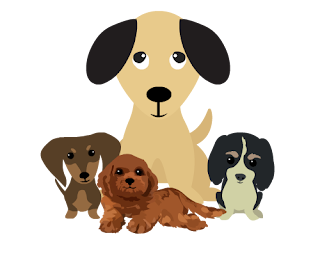Breeding Licence
Who needs a licence?
Businesses need a licence regardless of the number of litters produced per year however this is not restricted to registered businesses. Individuals can also be classed as a business depending on the extent of their activities The council will arrange an inspection of your premises before you get a licence and they may carry out additional inspections at any time after it’s granted.
You must prove that you can meet the licence conditions and this will include showing that the dogs are:
- kept in suitable accommodation
- provided with adequate food, drink and bedding
- exercised regularly
- transported in safe and comfortable conditions
- protected in case of an emergency, like a fire
- protected from pain, injury, suffering and disease
- keep any records ready for inspection, for example a register of your dogs and all puppies
- display the licence number in any advertising
- display the licence clearly on the premises
A key part of the Breeding Licence will be a new “star rating” which will be awarded as part of a risk-based system of inspection. This system will be used to determine both the length of time that the licence is issued for and the star rating awarded. The star rating ranges from 1 star to 5 stars and the better performing the business is from a welfare perspective the higher the star rating awarded.
Furthermore, the higher the standard of the business the longer the licence will be issued i.e. 1 – 3 years. The scoring matrix determines the star rating and it takes into account the animal welfare standards adopted by the business and your level of risk (based on elements such as past compliance).
Meeting the minimum standards
This means a licence holder meets the standards set out in the specific and the general conditions. The Defra guidance documents outline in more detail how to meet the conditions and it is expected all licence holders will achieve minimum standards.
Minor failings
If there are minor failings a licence will be issued as the failings are normally only administrative. A licence will not be issued or will be suspended or revoked if the welfare of animals is compromised.
Higher standards
How to achieve higher standards is detailed against each activity in the Defra guidance documents. Meeting the higher standards is optional but is the only way to gain a higher star rating furthermore a business must meet the minimum standards before the higher standards can be considered. There are two types of higher standard: ‘required’ and ‘optional’ and to apply the higher standards, businesses need to achieve all of the ‘required’ higher standards and 50 per cent of the ‘optional’ higher standards.
What we provide:
Furrypeeps supply breeding licence packs based around the written requirements of the 2018 Animal Welfare Act and the Defra guidance as amended in February 2022.
The pack includes over 50 documents covering the recording requirements needed to secure a Local Authority Breeding Licence. It includes plans, record sheets, contracts and risk assessments. All required to get a minimum standard breeding licence.
- Contracts & Receipts
- Dog Register
- Flea/Worm/Vaccine Charts
- Breeding & Whelping Charts
- Puppy Records & Charts
- Health Testing Charts
- Monitoring & Information Sheets
- Emergency Forms
- Isolation & Quarantine
- Health & Welfare Plans
- Risk Assessments
- Socialisation & Enrichment Plans
- Feeding



Comments
Post a Comment